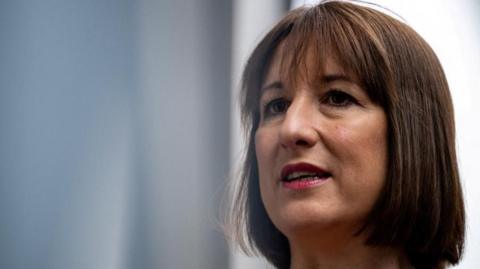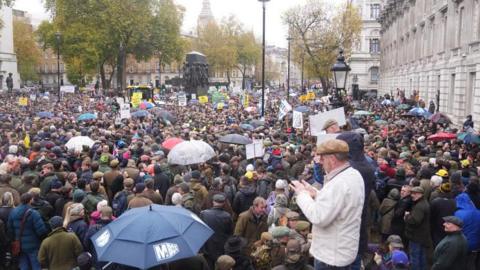Perhaps more troubling was the publication on Thursday of October's borrowing figures, which showed the gap between the government's spending and tax take was much higher than expected and underscored Reeves's challenge of keeping the public finances under control.
The latest growth figures made pretty grim reading too, with the UK economy barely growing between July and September.
Jumpstarting economic growth is the ambition that underpins everything the government is trying to do and Reeves said she was "not satisfied" with the figures.
At the time of the Budget, the Office for Budget Responsibility (OBR) predicted growth would pick up to 2% next year before falling back to around 1.5% from 2027.
Hardly dynamic. But the chancellor is banking that the impact of the Budget, next spring's spending review and forthcoming reforms to skills, planning and more can ignite some economic growth.
However, this week she heard more complaints from business that her Budget could have the opposite effect.
In a letter to Reeves, Tesco, Amazon, Greggs, Next and dozens of other chains jointly said that measures in the Budget, in particular the employer National Insurance rise, would add billions in costs, "increase inflation, slow pay growth, cause shop closures, and reduce jobs".
Expect more of that when the Confederation of British Industry (CBI) gathers for its annual conference on Monday.
The prime minister has stood by the plans, and last weekend insisted the Budget had made the right calls and would stabilise the economy and public services.

